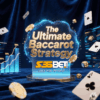With seven WSOP bracelets and more than $56 million in live tournament earnings, Negreanu’s involvement adds significant star power to Kalshi’s brand at a time when the company is under intense regulatory scrutiny.
Poker Legend Daniel Negreanu Partners with Prediction Market Platform Kalshi

Kid Poker Joins the Prediction Market Arena
World-renowned poker champion Daniel Negreanu, better known as “Kid Poker,” has officially partnered with the prediction market platform Kalshi. The announcement was made on September 16 by Kalshi CEO Tarek Mansour, who likened Negreanu’s poker career to Kalshi’s own uphill battle with regulators.
With seven WSOP bracelets and more than $56 million in live tournament earnings, Negreanu’s involvement adds significant star power to Kalshi’s brand at a time when the company is under intense regulatory scrutiny.
Kalshi’s Struggles Mirror Poker’s Challenges
“Kalshi’s journey in building prediction markets has been similar to poker,” Mansour said. “We’ve faced endless setbacks and rejections, but our vision has never changed: to push the boundaries of financial markets no matter how difficult the path.”
Negreanu echoed that enthusiasm, tweeting:
“On Kalshi, you can trade on everything from sports to politics to pop culture—it’s a true game-changer, and it’s accessible across all 50 U.S. states!”
Rising Regulatory Heat
Despite the high-profile partnership, Kalshi faces mounting pressure from state regulators. Critics argue that its binary event contracts resemble gambling products rather than financial instruments.
In Massachusetts, Attorney General Andrea Joy Campbell has sued Kalshi, accusing the platform of operating illegal sports betting markets. The state’s Gaming Commission is also seeking to block Kalshi’s sports-related contracts.
A Kalshi spokesperson told SiGMA News:
“Kalshi offers a fair, transparent, federally regulated marketplace. While many states engage with us constructively, Massachusetts relies on outdated laws to stifle innovation.”
The decision to bring a poker superstar on board as brand ambassador is likely to fuel critics’ claims that Kalshi is closer to a betting operator than a regulated exchange.
Legal Battles Escalate Nationwide
Negreanu’s partnership announcement came just a day after Robinhood, one of Kalshi’s trading partners, filed a federal lawsuit to stop Massachusetts regulators from enforcing state gaming laws. Court filings revealed that Kalshi contracts traded through Robinhood reached $1 billion in volume in Q2 alone.
Campbell argued:
“Sports betting carries serious risks of addiction and economic harm. Strong regulation is essential to protect public health.”
Robinhood countered, telling SiGMA News:
“We believe in the power of prediction markets at the intersection of trading, news, politics, culture, and sports. Every qualified customer should have access to these federally regulated products.”
Massachusetts is not alone. Earlier this year, three California tribes filed suit against Kalshi and Robinhood, accusing them of disguising illegal sports betting as financial trading in violation of the Indian Gaming Regulatory Act (IGRA). Similarly, the Ho-Chunk Nation in Wisconsin filed a separate case alleging racketeering and IGRA violations.
Meanwhile, a Nevada federal judge recently rejected Kalshi’s attempt to avoid discovery, ordering further fact-finding on whether its contracts comply with state and federal laws.
Star Power Meets Uncertainty
As part of his new role, Negreanu will sponsor one fan’s entry into the WSOP Paradise Super Main Event in the Bahamas. The Canadian-born pro, who moved to Las Vegas in his early 20s, first won a WSOP bracelet in 1998 at just 23, becoming the youngest champion at that time.
Kalshi, however, continues to face uncertainty. Since launching its sports markets, the platform has processed more than $1 billion in trades across 3.4 million contracts. The CFTC has yet to take a definitive stance, canceling a scheduled roundtable earlier this year.
Now, both the CFTC and SEC are set to host a joint roundtable on September 29 to address the murky legal status of prediction markets and event contracts. Experts say this discussion could shape the future of the industry and determine whether new regulatory frameworks are needed.












